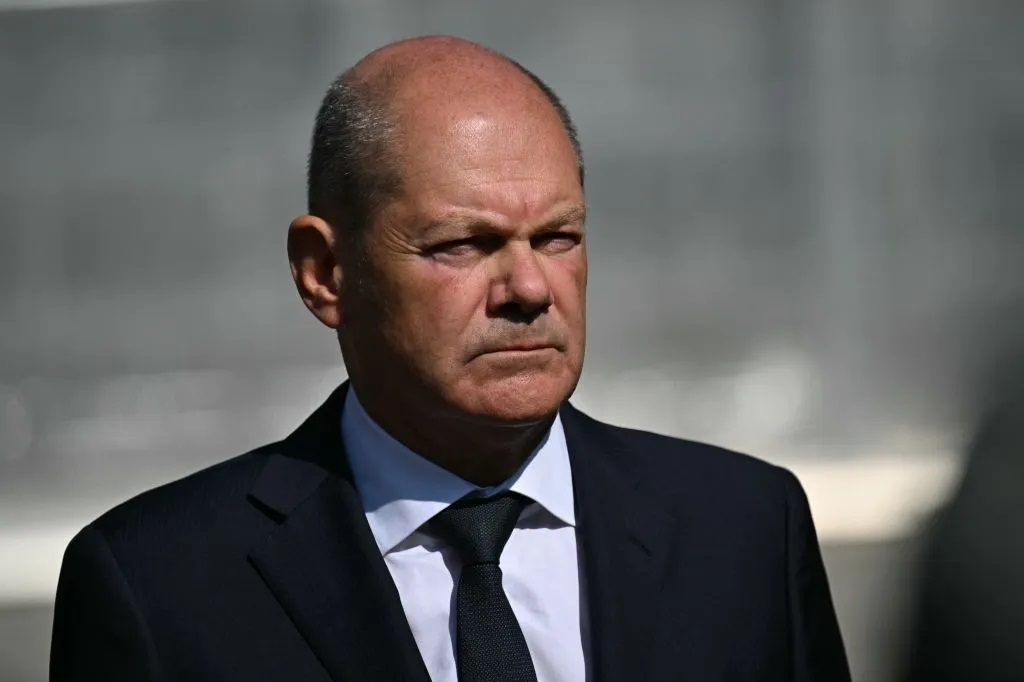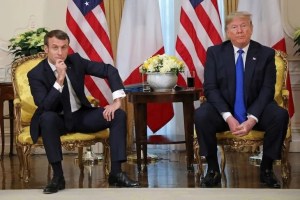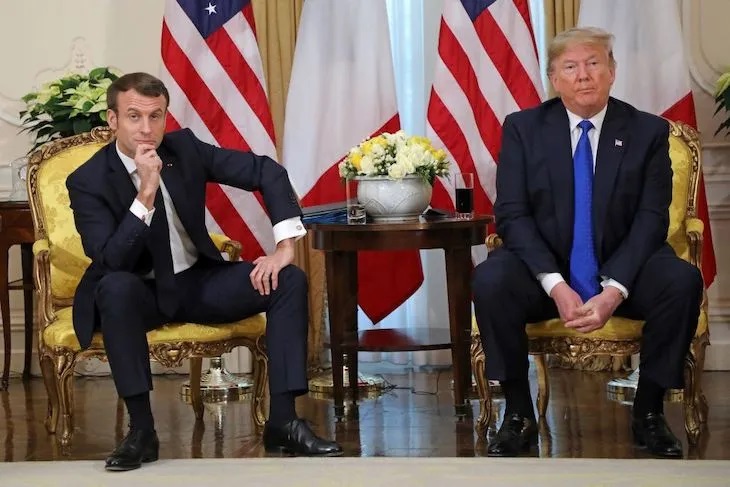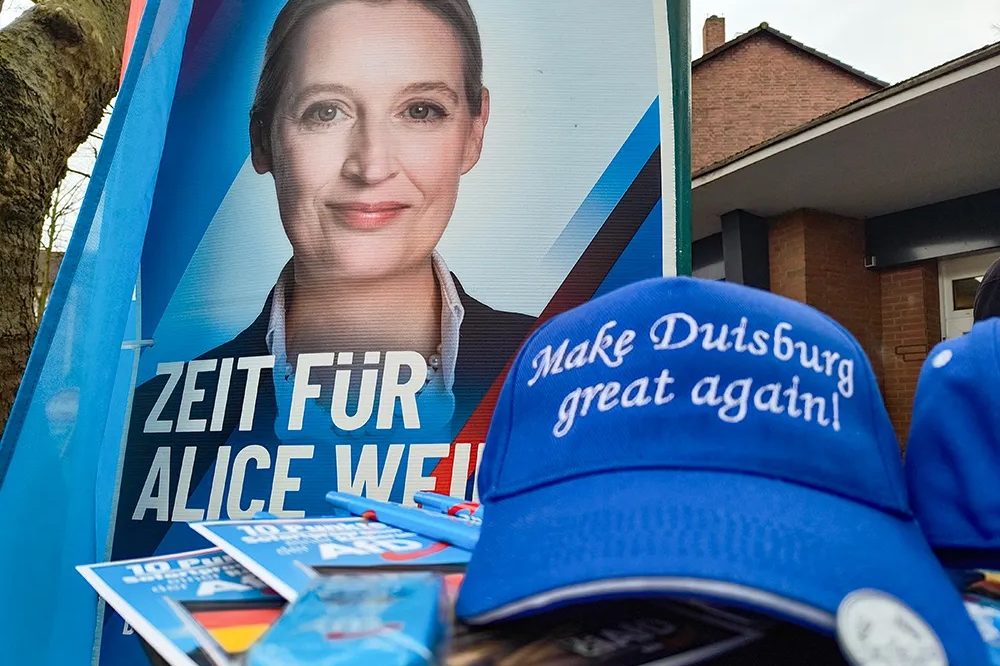Shock quickly turned to anger in Germany when a Syrian asylum seeker was arrested for the brutal knife attack in the city of Solingen last weekend. Three people were murdered and eight more injured by a man who had no right to be in Germany.
Politicians from the coalition government reacted with a flurry of statements, demanding anything from tougher knife laws to quicker deportations of illegal migrants. But many voters want to see more than tweaks to the immigration system before they can begin to feel safe again on Germany’s streets.
The message to Scholz is clear: if he wants to toughen immigration policy, he’ll have to do it without the Greens
Recognizing the tense mood across the country, opposition leader Friedrich Merz has called on Chancellor Olaf Scholz for a response that amounts to more than “hollow rituals” of grief. “Enough… no more taboos,” the Christian Democrat thundered in a press conference on Tuesday afternoon. Merz demanded nothing less than a U-turn of Germany’s immigration policy. And he has challenged Scholz to work with him to make it happen.
This offer to work with the opposition on the highly sensitive issue of immigration has maneuvered Scholz into an awkward position. If he doesn’t take Merz up on it, his hands are tied. In recent months, his fragile, three-party coalition has teetered on the brink of collapse. With the pro-immigration Green Party as an integral part of his majority, Scholz is unlikely to push through any measures to restrict the number of people coming into the country.
His Green Foreign Minister Annalena Baerbock certainly shows no sign of changing her stance on immigration after Solingen. Campaigning for her party in the eastern German state of Saxony, where there will be regional elections on Sunday, she said, “Even if many hatefully talk this down: we can do this.”
The words would have been familiar to her listeners. They allude to Angela Merkel’s famous “We can do this” slogan with which she attempted to rally support for her border policy in 2015 when she allowed over one million asylum seekers into the country. Baerbock went even further on Wednesday, telling her audience, “We can do this again and again.” The message to Scholz is clear: if he wants to toughen immigration policy, he’ll have to do it without the Greens.
One option for the chancellor is to sit on his hands and hope this will blow over, a risky strategy that may plunge his already appalling approval ratings deeper into the ground. His Social Democrats have long slipped behind the far-right AfD in the polls and are heading for their worst election result in modern history. Alternatively, he can work with the opposition, Merz’s Christian Democrats (CDU), with whom he’d have a majority of seats in parliament. But that means accepting their lead on an issue that is deeply important to voters.
Merz has been careful to frame his bold move as motivated by genuine anger and concern rather than party-political considerations. In the press conference, he stressed that he was “not just the leader of the opposition” but also “a citizen of the state.” German reporters counted that he told them six times that there were “no tactics” involved in his demands, only concern for the state of the nation.
But there is no getting away from the fact that Merz is using the Solingen atrocity for his own political ends. It was his party, then under Angela Merkel, which had opened Germany’s borders to record numbers of asylum seekers and illegal immigrants. Since the much-discussed crisis of 2015, many more refugees have arrived, most from Syria and Afghanistan. At the end of last year, over three million asylum seekers were registered in Germany — equivalent to nearly 4 percent of the country’s population.
Instead of taking on the legacy of his party colleague Angela Merkel, Merz has criticized her policy and distanced himself from it, thereby shifting the CDU — back onto the conservative footing it was founded upon after World War Two.
Many critical observers have pointed out that Merz’s plan to turn current immigration policy on its head might be unrealistic. One of his immediate demands was to admit no more asylum seekers from Syria and Afghanistan, which would require a change of fundamental legal principles such as laws against discrimination. Justice Minister Marco Buschmann from the Liberal Democratic Party (FDP) argued that the legal hurdles would be such that “we can’t just say nobody is allowed to come to us anymore.”
Merz is unlikely to be troubled by the legal difficulties his demands pose. He told the German press that it was a typical move by the government to list all the things they couldn’t do and appear deeply divided along the way. Offering Scholz a way out of the chaos of his unpopular coalition with bold demands to reduce immigration is intended as a message to voters about the path Merz would take if he were chancellor.
With federal elections scheduled for next year, Merz wants to run for the office of chancellor and he is setting out his stall. This is likely to work. His party was already leading the polls by some margin before Solingen and the first survey taken after the attack showed an increase of one percentage point for his party, which is now on 31.5 percent of the vote. Scholz’s SPD lost half a point and is now on 15 percent. Interestingly, the far-right Alternative für Deutschland (AfD) also lost half a point, indicating that Merz’s move has the potential to draw voters back from the political fringes to the center-right.
One online survey also showed that nearly 80 percent of people no longer trust Scholz’s coalition to deal with extremism, with one polling expert commenting that “people trust the conservative parties to be more competent on security and the fight against terrorism.”
Merz’s strategy may well work out even if the feasibility of the individual measures he has suggested do not. Scholz has already responded to the demands by agreeing to set up a task force made up of representatives of the opposition and Germany’s sixteen states. Many Germans seem to be happy to accept that a meaningful change in policy will take time. One survey taken after Solingen indicated that the majority would rather have a well-thought-out response rather than a quick one. So Merz doesn’t need to deliver anything specific right now.
This gives the opposition leader time to present himself as someone who is keen to act on restricting illegal migration and the number of asylum seekers without veering as far to the right as the AfD. In a survey last year nearly two-thirds of people said that Germany should take fewer refugees. The corresponding rise in the AfD’s popularity shouldn’t have come as a surprise.
Merz might be able to signal a general shift in the political spectrum if he can credibly pull the Christian Democrats back to the political conservatism it lost under Merkel without veering into empty populism. This would fill a political vacuum right of center that has the potential to draw back voters from the far-right and disaffected non-voters.
Whether he can pull this off is a different matter. Merz had a somewhat clumsy go at Germany’s refugee policy before when he claimed that people with rejected asylum claims could stay in Germany to have dental treatment while Germans couldn’t get appointments with their dentists. Many voters saw this as the empty bluster that it was and didn’t flock back to the party that provided Germany’s three longest-serving post-war chancellors: Konrad Adenauer, Helmut Kohl and Angela Merkel.
Merz also has a popularity problem. In a recent survey, only 8 percent of people thought he was the best candidate for the job of chancellor. His colleague Marcus Söder from the CDU’s Bavarian sister party the Christian Social Union (CSU) topped that poll. It remains to be seen if Merz’s initiative on immigration policy can have a long-lasting effect on his image and that of the country’s conservative parties.
Whether Germany will really change its immigration policy in the foreseeable future is still doubtful since the ruling coalition lacks the will and unity to implement measures and the opposition cannot act by itself. But as all the established parties fear the rise of the AfD, this is the moment when they have a chance to deprive the far-right of its political oxygen.
This article was originally published on The Spectator’s UK website.

























